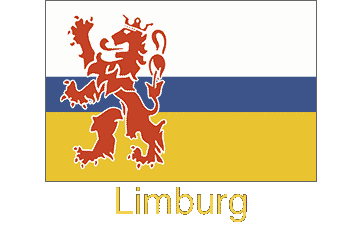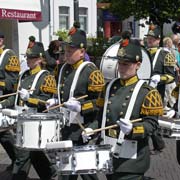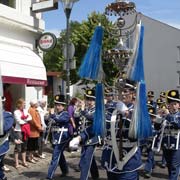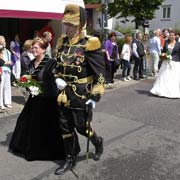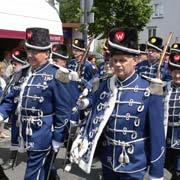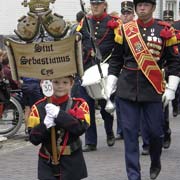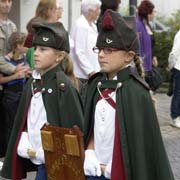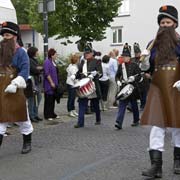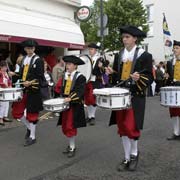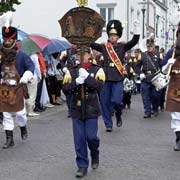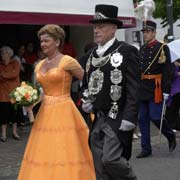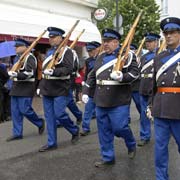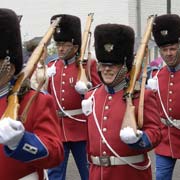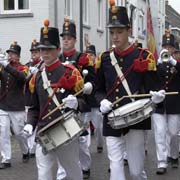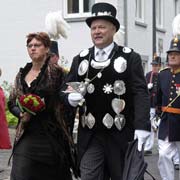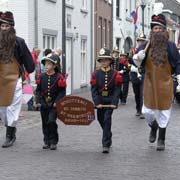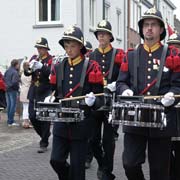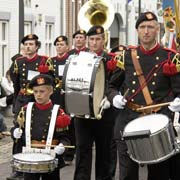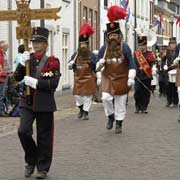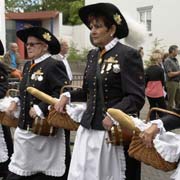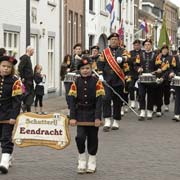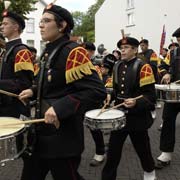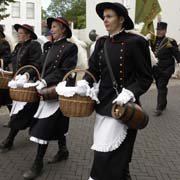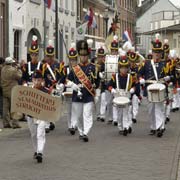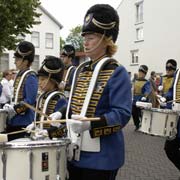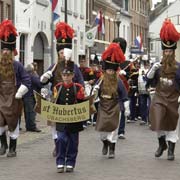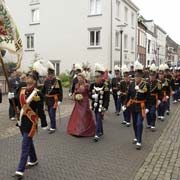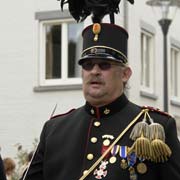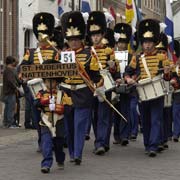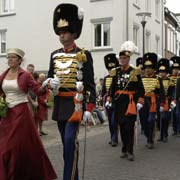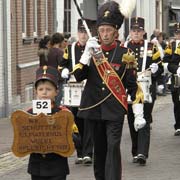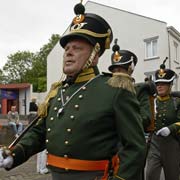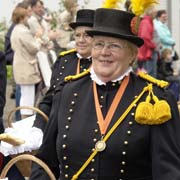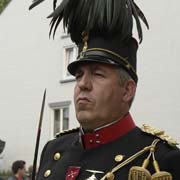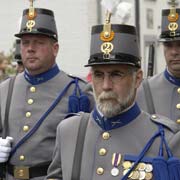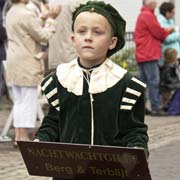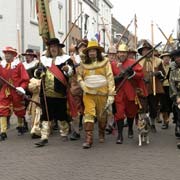Photos of a parade of Schutterijen in Limburg, the Netherlands
A parade of Schutterijen in Limburg
A "Schutterij" was a voluntary city guard or citizen militia in the medieval and early modern Netherlands. Its function was to protect the town or city from attack and act in case of revolt or fire. Traditionally "schutters" were archers and "cloveniers" musket bearers although later they all used firearms.
you may then send it as a postcard if you wish.
For about 500 years these militias were active but by the second half of the 18th century it started to decline, until after the foundation of the Kingdom of the Netherlands King William I set up professional police forces; in 1901 the schutterijen were abolished.
Nowadays especially in the southern province of Limburg the traditions of these "schutterijen" have been preserved and every year enthusiasts meet regularly, dressing in traditional costume and demonstrating how cannons were used in strongholds. The "Oud Limburgs Schuttersfeest" (Old Limburgs Schutter Festival) is an annual event in which more than 160 schutterijen (sjötterie in Limburgish) from Belgian and Dutch Limburg compete against each other. The winner organises the event the following year and takes home "De Um", the highest prize for a schutter.
In Meerssen, a town 7 kilometres north east of Maastricht, there is a parade of at least 60 "schutterijen" from villages and towns around southern Limburg marching proudly through the streets in full traditional uniforms. A child carrying a sign denoting their patron saint and place of origin leads a company of "bielemannen" (bearded men carrying axes "to clear the road of obstacles") followed by a drum band, riflemen, "marketentsters" (women who provided food and strong drink to soldiers) and a "King and Queen", honorary positions held for a year. It is a very colourful display and a very important piece of culture of the country's south.
